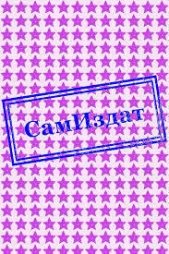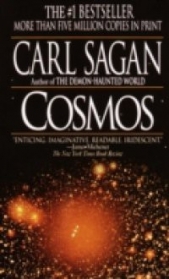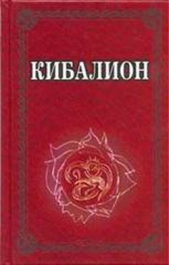Образ человека будущего, Том 7 (СИ)

Образ человека будущего, Том 7 (СИ) читать книгу онлайн
На основе предшествующих трех монографий Международное философско-космологическое общество начало выпуск научного журнала Future Human Image, в котором представлены современные мировые исследования образа человека будущего. Журнал охватывает области нейронаук, педагогики, философии образования и психологии. В данном выпуске представлены работы специалистов из США, России, Украины, Бразилии, Южной Африки, Испании, Казахстана. Журнал публикует исследования на русском, английском и украинском языках
Внимание! Книга может содержать контент только для совершеннолетних. Для несовершеннолетних чтение данного контента СТРОГО ЗАПРЕЩЕНО! Если в книге присутствует наличие пропаганды ЛГБТ и другого, запрещенного контента - просьба написать на почту [email protected] для удаления материала
From these positions, migrated universities comprehend as an active bearer and translator of "idea of university". The "twin universities" have a lot of formal arguments to be comprehended as authentic ones, but author stresses on the fact that these institutions don"t fit the universities axiological criteria: these universities rejected ones" own tradition; teachers are ready to work in censored conditions and manipulate the knowledge; teachers and students risk to became subjects of violence; the autonomy and academic freedom are absent. Author also appeals the historical facts on the example of Cambridge University origination that let make the optimistic conclusion concerning the perspectives of migrated universities.
Key Words: divided university, idea of university, Ukrainian higher education, postcolonialism, quasi-republics, Revolution of Dignity, university cloning, university mitosis, Magna Charta Universitatum
Introduction
There is a well-known fact, that Ukraine as a national state passes the complex processes of modernization trying to overcome one"s post-totalitarian "heritage". These processes started at the beginning of the 1990s as a result of USSR break-up. Political and cultural transformations at Ukraine have two opposite poles (the European-oriented and Russia-oriented ones). During more than twenty-five years, Ukraine tries to build independent, democratic national state and stop being the "little brother" for Russia. The intensiveness of these processes differs from the political courses of the Ukrainian presidents.
The extreme activating of democratic activity at 2013-2014 initiated the political crisis in relations with Russia. The most tragic aspects of this crisis are following: the annexation of Crimea by Russia; the inspiration and support of terroristic organizations at the East of
╘ Svyrydenko, Denys, 2017
128 Future Human Image. Volume 7, 2017
Divided Universities: The Postcolonial Experience of Contemporary Ukrainian Higher Education by Denys Svyrydenko
Ukraine, which caused the origination of temporary uncontrolled territories at Donetsk and Luhansk regions.
From the one side, these territories are supported by Russia that let them imitate the independent political and cultural activity at the form of quasi-republics (DPR - Donetsk People"s Republic and LPR − Luhansk People"s Republic) or annexed Crimea. From the other side, origination of these political subjects was promoted by the specific worldview orientations of the territories citizens. Mentioned regions had industrial economics. They are territorially close to Russia. Most of people lived at the Soviet Union and can be characterized using metaphor of "homo sovecitus." Thus, the majority of these regions" people feel the nostalgia for USSR transformed to respect of Russia.
As a result, these people do not share the Ukrainian national idea and European values. This situation fits the logic of postcolonial interpretation of mentioned Ukrainian territories: "The intersection of imperial and local cultures creates different kinds of practices and ideas. While some of them articulate the colonial values, others destroy them. Meanwhile, not always the local holds authentic meanings as culturally productive practices. In some cases, the imperial brings development to the local. For example, the modernization of a large part of former modern colonies took place due to the interaction with metropolises" [Gomilko at el, 2016:
180].
The quasi-republics originated at the result of military conflict, which takes place up-to-date. This conflict caused large-scale migration processes. The millions of Ukrainian people become the subjects of migration trying to escape form the direct military activity at their cities. The Ukrainian politicians also understood the need of saving the social and intellectual capital of the regions. At the result, most of the scientific and education institutions performed the migration procedure too. However, this migration had a special nature: the institutions migrated without facilities and resources; the stuff of migrated institutions was not full too (sometimes, the majority of the institution stuff stayed at the territory of "new republics" sharing ones" ideology or at the result of life occasions) and so on. The Ukrainian national state strived to grant the facilities for these migrated (evacuated) institutions trying to save their potential as well as help Ukrainian citizen to avoid possible violence. The institutions at uncontrolled territories saved ones" institutional status becoming a part of new social order of quasi-republics.
Ukrainian philosopher Roman Dodonov describes the contradictions of universities migration in a following way: "The question about evacuation of 18 Ukrainian universities and
10 academic institutes form the zone of counter-terroristic operation raised at the beginning of 2014/15 academic year. Most of them relocated ones" studying process to own affiliated branches within the bounds of Donetsk" and Luhansk" regions... At the same time, almost every evacuated university had one"s "duplicate": many students and teachers declined to leave the bounds of their own city factually bearing with the military occupancy and re-subordination to "governments" of self-proclaimed republics" [Dodonov, 2015]. For the situation described by Dodonov, we can find many descriptions in modern discourse of philosophy of education. There are some of them: "divided universities", "cleave on two universities", "evacuated universities", "in exile universities" and so on.
At the research author is also going to discover the heuristic potential of interdisciplinary and transdisciplinary methodological approaches for understanding the essence of the universities multiplication at the social and cultural landscape of modern Ukraine. Author hopes to find the correct methodology, which would help to understand the logic of classification of these
Future Human Image. Volume 7, 2017 129
Divided Universities: The Postcolonial Experience of Contemporary Ukrainian Higher Education by Denys Svyrydenko
"coupled" universities and substantiate the possibility to interpret one of them as an authentic university on the theoretical basis.
Author substantiates the idea that it is important to provide the clarity in problematic situation and answer parallely the questions alike "Is modern university a sum of teachers and students?", "Is modern university a lifeworld (sum of practices, places like campus)?", "Does idea of university work for both types of divided universities?" According to author"s point of view, it would let estimate, which one of the paired universities can be comprehended as authentic. It also would let make some prognostic conclusions depending the future of
Ukrainian higher education modernization processes.























